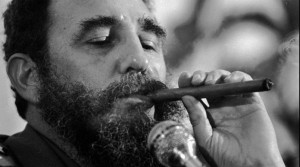10% off your first order
Free concierge design service :
(424) 226-8612
10% off your first order
Free concierge design service :
(424) 226-8612

 Among different ethnic groups and regions, smoking culture also varies profoundly. The ethnic groups with the lowest percentage of smokers are Asians and Hispanic, both at around 10%; on the other hand, people of multiracial as well as American and Alaskan Indians contains the highest ratio of smokers at around 28%. Despite the stereotypical scenes presented in old Hollywood movies, people from the west are actually the lightest smoker in the United States, as opposed to the people in the midwest, which have the heaviest users. This makes sense, though, since the west coast is the most ethnically diverse with a high population of Hispanics and Asians. Regarding the types of tobacco use, cigarettes are the most popular due to the relatively cheaper prices, followed by the higher-end, sophisticated cigars, with smokeless tobacco being the least popular.
Referencing from the data above, it is surprising to find that among the Asian group, there is also a high degree of differences depending on the different countries. As for Korean-Americans, about 37.4% of them are regular smokers, which outpaces not only the average of the US but even American and Alaskan Indians, the highest ethnic group. This phenomenon can be explained by the Korean culture. Many Korean-Americans are still deeply in touch with their root culture as a lot of them are recent immigrants or first-generation and thus, the cultural norms, beliefs, and values of South Korea are still firmly retained.
In South Korea, smoking symbolizes social acceptances, high status and act as a rite of passage. It is basically a norm to engage in smoking activities during social gatherings in order to be accepted as an in-group member as smoking helps to enlighten a person?s mood for the mean time. Due to the strong social pressure, a lot of Koreans smoke during gatherings in order to avoid damages in social relationships. Another interesting aspect of Asian culture, in general, is that people tend to conform to social norms in order to avoid tensions, opposing to the western value of individuality. Thus, more than one-third of Korean Americans are still regular smokers in respect to their root culture.
Like the Asian group, smoking habits of subgroups for Hispanic also varies greatly, with Puerto Rican being the highest. One difference, however, is that Hispanics who were born in the United States are more likely to consume tobacco than those who were foreign-born. Research suggests that there are five major antecedents to smoking in the Hispanic group, which includes, consuming alcohol beverages, after eating, feeling nervous or tense, during a party, as well as being surrounded by other smokers. The feeling of nervousness perpetuates the smoking behavior of the Hispanic group as half of the respondent claim that smoking helps to soothe their tenseness. In addition, tobacco industries have also been fairly good at targeting the Hispanic group through providing fundings to the community in returns for representation.
As for African-Americans, the percentage of smokers is about average, although they tend to pick up on smoking relatively late in their life in comparison to other groups. Thus, research suggests that African-Americans smoke a lot less when comparing to Whites and Hispanics. This phenomenon can be explained by a few protective reasons, like price sensitivity, religiosity as well as sports involvement. The tobacco industry constantly creates a positive image for African-Americans and have sponsored various cultural events including the support of higher education, which might be the reason for the increase in tobacco consumption at the latter age.
So what about cultural differences outside of America? While there aren?t any major comparison found on the internet, and I am not much of a traveler that have any insight into different countries? attitude towards smoking, there is an article brushing through the different attitudes towards cigars in the US and the UK. For Americans, we prefer cigars with strong flavors and it is more like an everyday enjoyment despite being more expensive than cigarettes. Due to the embargo against trade with Cuba, until recently we can no longer enjoy the expensive Cuban cigar like the British people could. British people, on the other hand, prefer smooth and extra complex Cuban cigars. However, it is more of a luxurious experience for them due to the ridiculously high price, which makes cigar smoking a high culture.
Smoking behavior is highly dependent on cultural differences, and are sensitive to economic and sociological factors. It is interesting for us to see how social norms and pressure conduct a groups? smoking behavior. On the flip side, it is also fascinating to learn about different culture through the phenomenon of smoking in different groups of people.
Among different ethnic groups and regions, smoking culture also varies profoundly. The ethnic groups with the lowest percentage of smokers are Asians and Hispanic, both at around 10%; on the other hand, people of multiracial as well as American and Alaskan Indians contains the highest ratio of smokers at around 28%. Despite the stereotypical scenes presented in old Hollywood movies, people from the west are actually the lightest smoker in the United States, as opposed to the people in the midwest, which have the heaviest users. This makes sense, though, since the west coast is the most ethnically diverse with a high population of Hispanics and Asians. Regarding the types of tobacco use, cigarettes are the most popular due to the relatively cheaper prices, followed by the higher-end, sophisticated cigars, with smokeless tobacco being the least popular.
Referencing from the data above, it is surprising to find that among the Asian group, there is also a high degree of differences depending on the different countries. As for Korean-Americans, about 37.4% of them are regular smokers, which outpaces not only the average of the US but even American and Alaskan Indians, the highest ethnic group. This phenomenon can be explained by the Korean culture. Many Korean-Americans are still deeply in touch with their root culture as a lot of them are recent immigrants or first-generation and thus, the cultural norms, beliefs, and values of South Korea are still firmly retained.
In South Korea, smoking symbolizes social acceptances, high status and act as a rite of passage. It is basically a norm to engage in smoking activities during social gatherings in order to be accepted as an in-group member as smoking helps to enlighten a person?s mood for the mean time. Due to the strong social pressure, a lot of Koreans smoke during gatherings in order to avoid damages in social relationships. Another interesting aspect of Asian culture, in general, is that people tend to conform to social norms in order to avoid tensions, opposing to the western value of individuality. Thus, more than one-third of Korean Americans are still regular smokers in respect to their root culture.
Like the Asian group, smoking habits of subgroups for Hispanic also varies greatly, with Puerto Rican being the highest. One difference, however, is that Hispanics who were born in the United States are more likely to consume tobacco than those who were foreign-born. Research suggests that there are five major antecedents to smoking in the Hispanic group, which includes, consuming alcohol beverages, after eating, feeling nervous or tense, during a party, as well as being surrounded by other smokers. The feeling of nervousness perpetuates the smoking behavior of the Hispanic group as half of the respondent claim that smoking helps to soothe their tenseness. In addition, tobacco industries have also been fairly good at targeting the Hispanic group through providing fundings to the community in returns for representation.
As for African-Americans, the percentage of smokers is about average, although they tend to pick up on smoking relatively late in their life in comparison to other groups. Thus, research suggests that African-Americans smoke a lot less when comparing to Whites and Hispanics. This phenomenon can be explained by a few protective reasons, like price sensitivity, religiosity as well as sports involvement. The tobacco industry constantly creates a positive image for African-Americans and have sponsored various cultural events including the support of higher education, which might be the reason for the increase in tobacco consumption at the latter age.
So what about cultural differences outside of America? While there aren?t any major comparison found on the internet, and I am not much of a traveler that have any insight into different countries? attitude towards smoking, there is an article brushing through the different attitudes towards cigars in the US and the UK. For Americans, we prefer cigars with strong flavors and it is more like an everyday enjoyment despite being more expensive than cigarettes. Due to the embargo against trade with Cuba, until recently we can no longer enjoy the expensive Cuban cigar like the British people could. British people, on the other hand, prefer smooth and extra complex Cuban cigars. However, it is more of a luxurious experience for them due to the ridiculously high price, which makes cigar smoking a high culture.
Smoking behavior is highly dependent on cultural differences, and are sensitive to economic and sociological factors. It is interesting for us to see how social norms and pressure conduct a groups? smoking behavior. On the flip side, it is also fascinating to learn about different culture through the phenomenon of smoking in different groups of people.